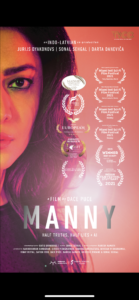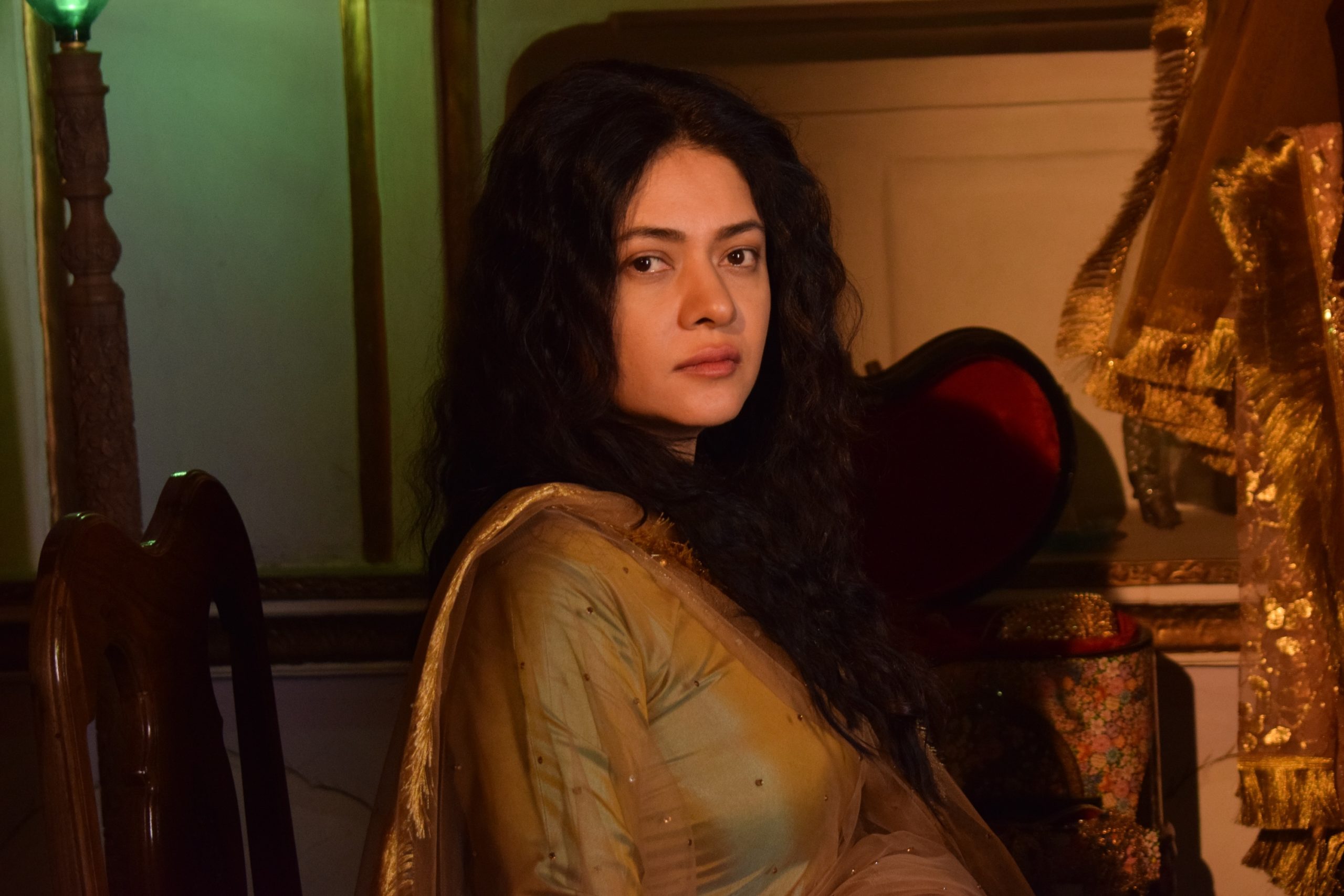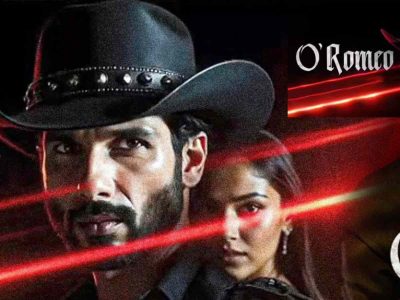With a film career that spans over a decade, actor-writer Sonal Sehgal reflects upon her journey so far — while talking about her craft and creative projects
Actor-Writer Sonal Sehgal has had a fascinating journey in the film industry. Her career began in television with two of the most unconventional shows – Saara Akash and Hotel Kingston – at a time when ‘Saas Bahu’ sagas ruled the prime time space. Next, she was cast in Nagesh Kuknoor’s Aashayein opposite John Abraham.
Despite the dream debut, she didn’t get the kind of offers she was hoping for. After doing a few films that didn’t satisfy her creative hunger she went to the US to study filmmaking. She came back and did Rahat Kazmi’s Mantostaan. Next she will be seen in the epic retelling of Ismat Chughtai’s timeless classic Lihaaf, also directed by Kazmi, which is set to premiere on Voot Select as part of Voot Select Film Festival.
In this interview, Sehgal talks about her association with Lihaaf and the preparation that went into playing the central character of Begum Jaan, her journey in the film industry, the relevance of Ismat Chughtai in contemporary times, and her Indo-Latvian film ‘Manny’ which she has also written and produced.
Excerpts:
Tell us about Lihaaf. How did you get associated with the project? Also tell us about your part and the preparation that went into it.
I had previously worked with director Rahat Kazmi on Mantostaan and hence he approached me for the next film he was planning. When Rahat broached the subject of Lihaaf, I immediately said ‘yes’. I have been a literature student and have extensively studied the works of Ismat Chughtai. And that’s the reason I proposed to co-write the film with him because I felt I really knew the subject well.
I play Begum Jaan, which I feel is one of the most layered characters written by the author. It is an extremely difficult character for an actor to bring on screen because you need to be able to elicit sympathy for her and at the same time her actions fill you with rage. She is both a victim of her circumstances and a perpetrator of a crime. Ismat Chughtai has so beautifully crafted the nuances of this character. I don’t know if I have been able to do justice to it as an actor. Getting into the skin of the character was very hard. Begum is someone who is trapped in a golden cage, living in a loveless marriage, cut off from the world, even her own family. I had to really work on being able to feel her loneliness. I requested the entire cast and crew to literally leave me alone as I had to really cut myself off from everyone to be able to feel the Begum’s pain.
How was the experience working on Lihaaf different from Mantostaan?
Rahat and I work very well together because I feel we are both students of literature. My experience on working in both the films was vastly different essentially because of the characters I play. Kulwant Kaur of Mantostaan is an extremely feisty, independent woman whereas Begum Jaan is lovelorn, insecure and alone in a patriarchal world. Whereas Kulwant fights for what is due, Begum’s journey is more inward, finding her voice in a patriarchal world.
How do you see the relevance of Ismat Chughtai in contemporary times? What is it about her writing that she never goes out of fashion?
The subjects that Ismat Chughtai writes about – freedom of speech, homosexuality, and expression of female sexuality, among others – are as relevant today as they were when she first wrote them all those years ago. Our society hasn’t evolved much. We are still fighting the same fights.
How do you see OTT releases vis-à-vis theatrical releases? Can the OTTs fully replace the theatres in the longer run?
It is a different kind of high when you are watching your film in a theatre with a live audience. Something I have been lucky to have experienced with my previous films and even Lihaaf during its vast worldwide festival run.
With the OTTs, there’s the advantage that your film is available to the viewers for “forever” literally. Or if I were to speak as an audience, just because I was vacationing in a certain fortnight doesn’t mean I have lost the chance to watch a really good film I was looking forward to. So I think like with everything, it has its pros and cons.
Your film Manny has been having quite a successful run at the film festivals internationally. What is the film about? Tell us about your involvement with the project. How did it come into being?
Manny has had a stupendous festival run. It’s beyond even our expectations. In the last six months only, we have won 7 awards across 12 Festivals.
It is the first ever Indo-Latvian. And it is a film that emerged out of a friendship. Latvian director Dace Puce and I studied together at a film school in New York. We worked on a lot of student films together. And it was back then we promised each other that we would one day make a full-fledged movie together. We tried working on a lot of projects but somehow they always fell apart. And finally I had this sci-fi thriller script which I sent to Dace and she immediately got excited about the idea. We started looking for investors for funding and before we knew it we were rolling. Manny revolves around an Indian woman who travels to Latvia on a writer’s retreat to work on an autobiographical novel. It was the first time I played three different roles in a film – that of an actor, writer and producer. But with the absolutely amazing cast and crew that I had, I never felt the burden, not for a second.

You have been in the industry for over a decade and a half now, but you haven’t been as prolific as some of your contemporaries. Why? How do you reflect back on your acting journey?
I come from a completely non-film background. When I came to Mumbai I knew only one person in this city – a model with whom I had done one ad back in Delhi. I called her and asked her if she would want to be my roommate. I started out with TV – Saara Akash and Hotel Kingston – the only two TV shows that were not ‘Saas Bahu’ at the time. A lot of people advised me against it, saying doing television might hamper my film prospects. Next, I was cast in Nagesh Kuknoor’s Aashayein opposite John Abraham. It was a dream debut but not many offers lined up outside my door. I had a lot of failures. I got dropped last minute from a lot of projects and replaced by more famous names or people associated with famous names. I realized talent and hard work aren’t always the criteria. Luck as well as being in the right place at the right time is equally important. Then I did a few films that didn’t satisfy my creative hunger and so I went to the US and enrolled myself in film school to study the craft of filmmaking. I came back and did Mantostaan, Lihaaf and Manny. I am in a happy place now, creatively satisfied with the work I am doing.
How has COVID-19 affected you, both personally and professionally? What according to you is the way forward?
If there’s one thing that COVID-19 has taught me it is never to take anything for granted. It’s the little things that I miss the most, something I would have never thought twice about. A simple hug from a friend, eating a meal in a crowded restaurant, being able to take an impromptu trip somewhere, feeling safe in crowds. Professionally, of course, a couple of projects that were slated to go on floor are in limbo right now.
People are waiting and watching if and when the third wave will hit. I wish the world would go back to how it was – like the pandemic never happened. But I am being told that we will have to learn to live with it.
(Cover: Sonal Sehgal)




